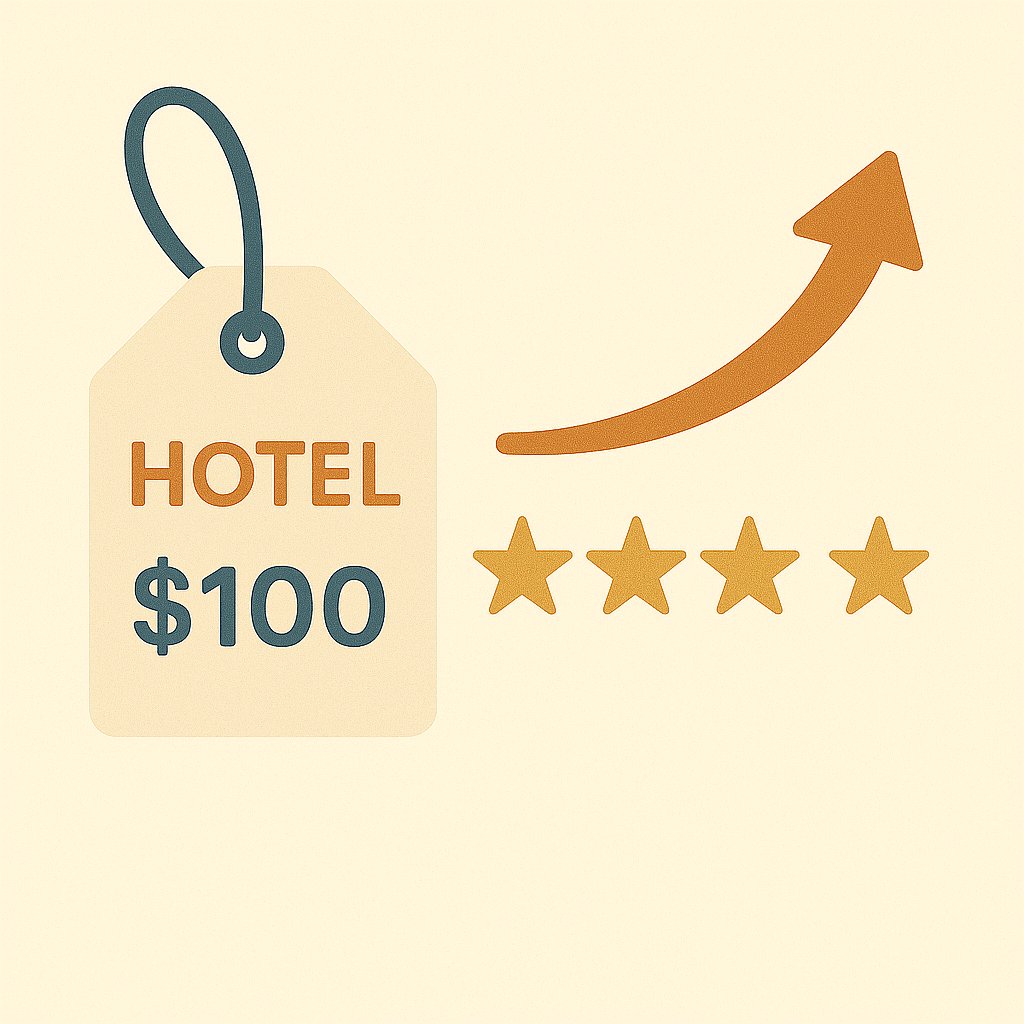What the Cornell Hospitality Study _Really_ Means for Your Hotel's Revenue
Discover how Cornell's findings translate into actionable revenue growth strategies for your hotel — and how you can calculate your own ROI.
For years, hotel owners have heard that “reviews matter.” But how much do they really affect your revenue? The groundbreaking research from Cornell University didn’t just prove that reputation drives profit—it showed exactly how much. Here’s what those numbers actually mean for your pricing, occupancy, and RevPAR today.
The Groundbreaking Finding on Pricing Power
The most widely cited finding from this research is nothing short of revolutionary. By analyzing transactional data, researchers established a clear causal link between a hotel’s review score and its ability to command higher prices. The key takeaway:
If a hotel increases its review score by just 1 point on a 5-point scale (e.g., from 3.3 to 4.3), it can increase its price by 11.2% and still maintain the same market share or occupancy rate, as first reported by Travel Weekly.
This powerful statistic demonstrates that travelers are willing to pay a significant premium for the perceived certainty of a better experience. It gives revenue managers a data-backed justification to shift their competitive focus from price to value.

From Reputation to RevPAR: The Ripple Effect
A subsequent, more expansive Cornell study reinforced these findings by connecting reputation scores to the industry’s most vital Key Performance Indicators (KPIs). The research found that a mere 1% increase in a hotel’s online reputation score leads to a cascade of positive financial results:
- An increase of up to 0.89% in price (ADR)
- An increase of up to 0.54% in Occupancy
- An increase of up to 1.42% in RevPAR (Revenue Per Available Room)
These figures, detailed in Cornell’s official report on social media’s impact, are arguably the most important in the field. They establish a predictable, quantifiable relationship between guest satisfaction and revenue.
The Mid-Market Advantage
Interestingly, the study found this effect was more pronounced for midscale and budget hotels than for luxury properties. As CoStar reports on the study’s nuances, mid-market hotels have higher consumer uncertainty, making a strong review profile an incredibly powerful differentiator. This creates a strategic opportunity for these properties to punch far above their weight by focusing on service excellence.
The Cornell research provides an undeniable business case: investing in the guest experience and actively managing your online reputation is a direct investment in your bottom line.
In short, Cornell’s research turned reputation into revenue math. The better your reviews, the stronger your pricing power and occupancy stability.
Use Review Agent’s ROI Calculator to see exactly how much a 1-point increase in your average rating could add to your bottom line — and start treating reputation as a measurable, manageable business asset.
Share this Article
Link copied!